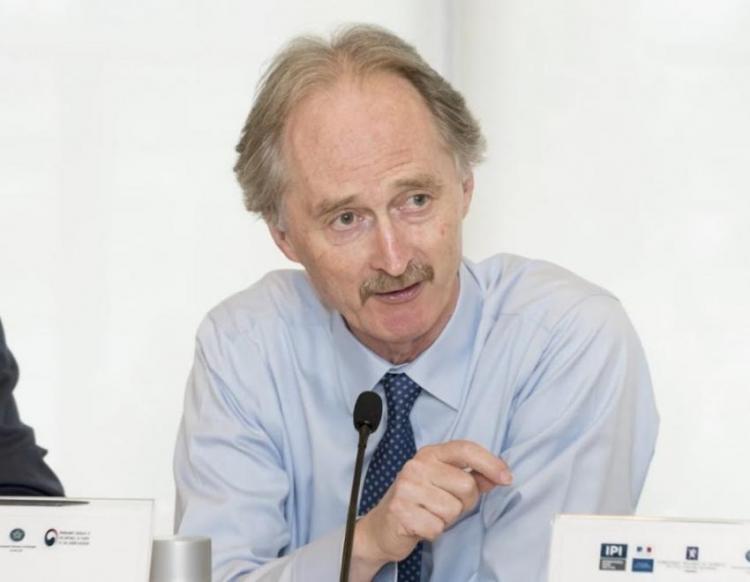The Constitutional Committee between solving the crisis and complicating it
Istanbul – North-Press Agency
Muhammad al-Yanayry
The formation of the Constitutional Committee was supposed to be one of the tools of solving the Syrian crisis, but the present introductions suggest that the Committee will be the gateway to more parallel crises.
The committee, in its final formation, has faced various criticism and accusations, especially the exclusion of the Autonomous Administration, and the accusation as an attempt by the victorious party to dictate its terms and to consume time.
“Lack of trust among the parties”
The United Nations special envoy to Syria, Geir Pederson suggested the necessity of the process of “prisoner exchange” between the Syrian government and the opposition in order to “build confidence” before the first round of the talks, and after the formation of the committee aimed at “achieving political reforms and holding elections, but they did nothing until now”.
Thus, the first meeting of the committee will reveal the nature of the relationship, amid demands about the beginning of the confidence-building procedures, as the United Nations recently pointed out, before the first commencement to make the committee to achieve success.
But opposition member Marah al-Buqai believes that “the opposition is represented by hawks in the constitutional committee. Those hawks – as she described them – won’t accept any concessions on the right of the revolution and the revolutionaries”.
She stressed in her talk with North-Press that with the commencement of the work of the Committee, the current Syrian government will be the caretaker government until the legislative and presidential elections.
The work of the Committee isn’t easy, and the road is long and full of bumps and crises associated with special details in the context of the desired Constitution.
Responding that the Committee comes within the context of “time-consuming”, she said: “We want to overcome the positives, because we are at an important stage of entitlements, and we cannot procrastinate in the political process or the political transition in Syria any longer”, as the opposition has no better choice.
This was also confirmed by the Egyptian diplomat Ahmed Hassan when he said: “There are many obstacles of the future work of this committee, especially in the issue of details and key materials”.
“It’s not going to be smooth”
Adel al-Halawani, the head of Syrian National Coalition (SNC) office in Cairo told North-Press, that the committee’s work “won’t be smooth at all, and will inevitably create more problems, which are all linked to the details of the discussions on the articles of the constitution with the commencement of the work of the committee”.
Al-Halawani indicated “the Syrian opposition, as bodies and individuals, has accepted to participate in this committee in order not to be the blocking party of any path of the political solution, and to put the crisis and the suffering of the Syrian people to an end”.
“The introductions don’t inspire a constitution which expresses the Syrian people who have paid their lives for their demands for freedom, democracy and social justice, especially in light of Russian and Iranian interests, in addition to the interests of the (Syrian) government. It is expected that the constitution would largely reflect the Syrian government and its allies”, al-Halawani added.
According to the U.N. envoy, the first round of the committee’s meetings will take place at the end of October, while media reports quoted a source close to the decision-making circles in Damascus asserting that “the mini committee will schedule the next meeting, its date, duration and agenda in each time”.
While the expanded committee, which is consisted of 150 members, would only meet when needed. The chairmanship of the committee “will be jointly from the lists of the government and the opposition, and then they will agree on a new structure which may be decided by the committee to represent the third bloc by a secretary or other positions”.

